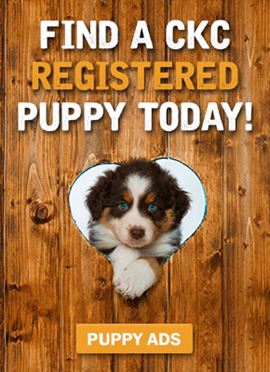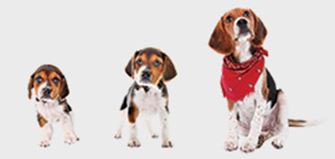
7 House-Training Don'ts All Puppy Owners Should Avoid
House-training attempts often end in failure when old-fashioned and ineffective methods are used. Sadly, all the time spent training a pet can be undone with a few simple mistakes.
Luckily, there are a number of actions owners can take to sidestep a potential house-training mess. Our list of potty-training mistakes and solutions will give you a leg-up in the fight to keep your house dry.
1. Don't Rub his nose in it.
A dog possesses a remarkably brief short-term memory, and a puppy's memory is even shorter than that! Rubbing a puppy's nose in a mess he's left behind isn't just cruel, it's also pointless and counterproductive. Your dog won't see the act of rubbing his nose in it as a consequence or discipline. Instead, it's far more likely that he will associate the act with you, his owner, which will cause him to lose trust and become fearful of you.
2. Don't Display anger toward your puppy when he has an accident.
Don't yell, don't speak in angry tones, and don't spank the puppy. If you see that the puppy is about to potty in the house, surprise him with a loud clap or whistle. If all goes well, your puppy's momentary distraction will provide you with enough time to bring him outside to potty.
3. Don't Put him in a crate that's too big.
The basic idea of crate training is that your dog, not wanting to soil his bed, will hold it as long as possible. Make sure your puppy’s crate is only large enough for him to lie down, stand up, and turn in a circle. Too much space can give him room to potty inside the crate
4. Don't Leave your puppy in the crate for too long.
Dogs dislike pottying in their own crates, and puppies are no different. However, if nature calls and the puppy is held in the crate for too long, the inevitable result will be a messy crate. In addition, if the puppy continues to relieve himself in the crate, he will eventually become used to doing so, making house-training that much more difficult. Take your dog outside at least once every two to three hours during the day. Also, remember that your dog will typically need to relieve himself shortly after waking, leaving his crate, eating, and drinking.
5. Don't Let your puppy roam around the house unattended.
If you can’t supervise your dog, he will need to be in a confined, danger-free area until you are able to monitor his play and exploration attentively. If he begins to sniff, squat, or walk in tight circles, quickly take him outside. Don't forget to offer lots of praise if your dog makes it outside to potty.
6. Don't Take him outside after the fact.
If you notice him pottying after the deed is essentially done, bringing him outside after that point may actually encourage accidents in the future, since the puppy may begin to associate going inside with going outside. Again, if the deed is done (or nearly done), there is no point in bringing him outdoors.
7. Don't Cease training after a few days of success.
Your dog may have been accident-free the last few days, but that doesn’t mean he’s perfect. If your puppy has an accident, don't ignore it as a one-time fluke. Address accidents as soon as they appear and return to your house-training routine for as long as is necessary. For puppies, training should continue to at least four to five months of age.
If you learn to avoid the 7 Don'ts of House-Training, your puppy will have a real advantage when teaching your puppy this essential skill.
Have you ever made any of these mistakes? Do you disagree with our list? Let's discuss in the comments below!












